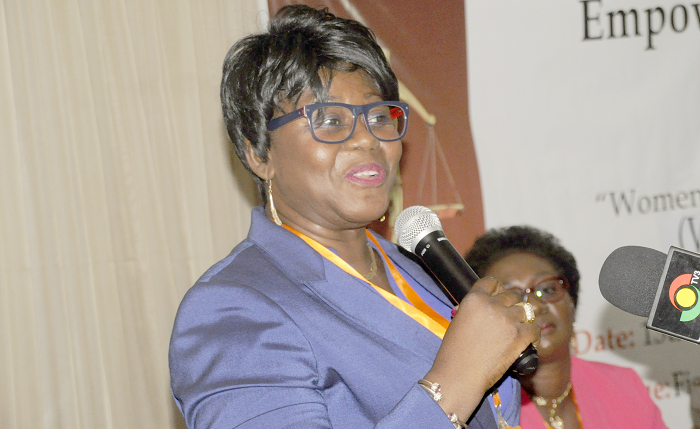
CRIRiT implements sensitisation programme to empower women against electoral violence
Various stakeholders and institutions are seeking to defend democratic gains by developing strategic interventions to promote transparent, credible and violence-free elections.
Advertisement
This is in view of the recognition that electoral violence brings about destruction of properties, killings, theft and assault on all persons, particularly women and girls, who are more likely to be victims of violence during electoral disputes, because of their vulnerability to sexual and gender-based violence.
Ghana’s election on December 7 will mark the seventh consecutive presidential and parliamentary elections since the country returned to democratic rule in 1992.
There have been some apprehensions and fears about these elections, especially with regard to violence.
Already, violent clashes have characterised the run-up to the December 7 election, as the limited voters registration exercise which took place from April 28 to May 8, 2016, as well as the parliamentary primaries of some major political parties, witnessed some reports of violent clashes.
Electoral violence
Electoral violence can be curbed or prevented, and training programmes and dialogue among electoral stakeholders, namely political parties, human rights organisations, security forces and others, to create an agreement on the rules of the elections, are critical.
Also, building up commitment and relationships (exchange of information, regular meetings, contingency planning) among other things are essential to ensure that conflicts, when they erupt, are quickly resolved.
Other interventions such as education, strengthening the judicial system and other democratic institutions responsible for engagement and dialogue between presidential and parliamentary aspirants, dealing with inflammatory radio discussions and the willingness of the police to act decisively in arresting and prosecuting perpetrators of electoral offences and instigators of electoral violence are relevant.
Furthermore, the empowerment of the women and women agencies, through education and skills training aimed at reducing their vulnerability to the selfish and cancerous manipulation of politicians, are ways of reducing or preventing violence before, during or after elections.
The Centre for Legal Advocacy Research Education and Training (CLARiT), having recognised that women make up the majority of Ghana’s population and that women have a very important role to play in order to ensure violence-free elections, designed and implemented the Women against Violence in Elections (WAVE Ghana) Programme in 2012.
Democratic gains
The programme was designed by the organisation to defend the country’s democratic gains by developing strategic interventions to promote transparent, credible and violence-free elections.
Activities undertaken under the WAVE Ghana Programme in 2012 included educating women on their role in promoting violence-free elections.
This year’s programme is to build on the success of the first WAVE Ghana programme, using ambassadors of WAVE Ghana and to organise WAVE Ghana Two Programme to ensure a violence-free election, before, during and after the election.
The programme, which targets the relevant sector ministries, the judiciary, students from tertiary institutions, the media, Parliament, civil society organisations, women and educational institutions, is on the theme: “Women Against Violence in Election (WAVE Ghana Two).”
It aims, among other things, to educate women about their roles in promoting a violence-free election, help to develop measures to strengthen electoral credibility which is key in preventing electoral violence, and increasing the use of evidence gathered by CLARiT by relevant national or international organisations in policy formulation and law-making, especially with regard to peaceful elections.
WAVE Two
For this reason, CLARiT organised a one-day programme on Empowered Woman Series Seminar in Accra, on the theme: “Women Against Violence in Elections (WAVE Two),” which saw the participants discussing the role of the police in ensuring peace, before, during and after the election in December 2016, with another session discussing the various roles the media could play to ensure violence-free elections.
The opening session of the day’s programme saw the presentation of a keynote address by the Special Guest of Honour, Mr Julius Debrah, the Chief of Staff, who lamented the behaviour of some party fanatics who raised false alarms by fabricating stories which created unnecessary tensions between parties, and a presentation by the main speaker, Her Ladyship Justice (Mrs) Gertrude Torkornoo, Justice of the Court of Appeal, on the topic: “Election Violence - A legal Perspective.”
She said Ghanaians needed to stop the claims that politics was a dirty game reserved for people who wanted to extract from the country instead of serving.
In her welcome address, the Executive Director of CLARiT, Mrs Jennifer Owusu, said the programme formed part of a series of seminars by CLARiT to empower Ghanaians.
She said six series of seminars had already been held and the programme testified the importance the organisation attached to national security and recognition offered to men’s role in supporting violence-free elections.




